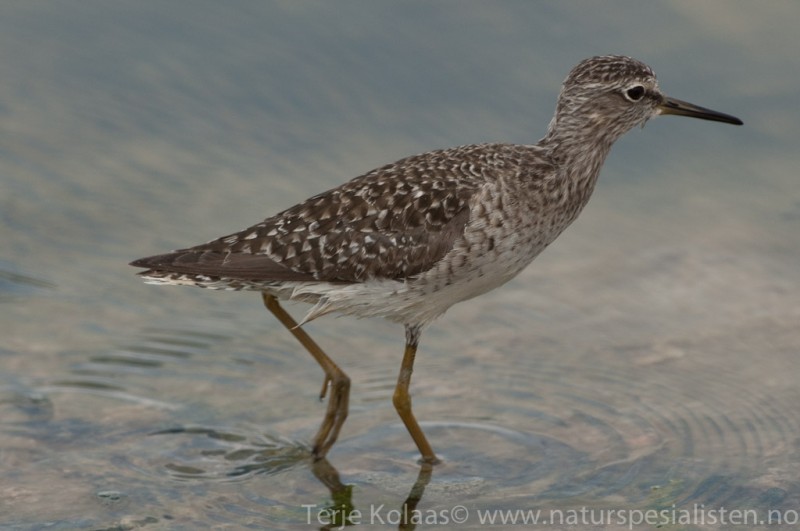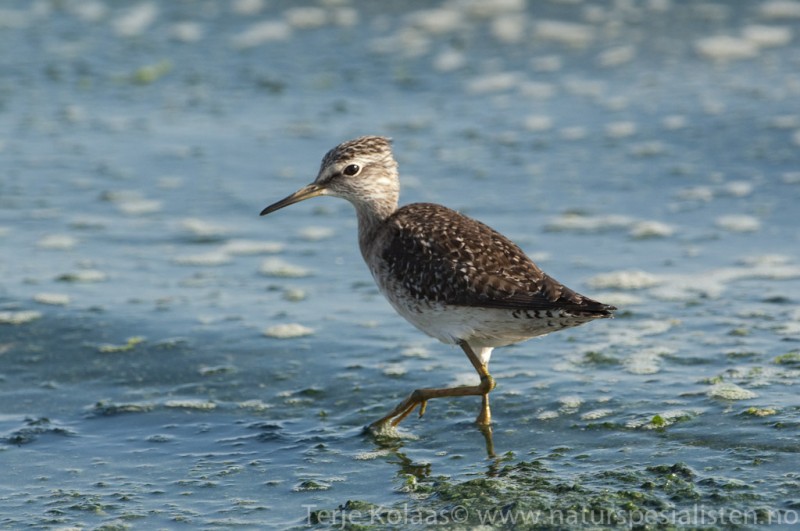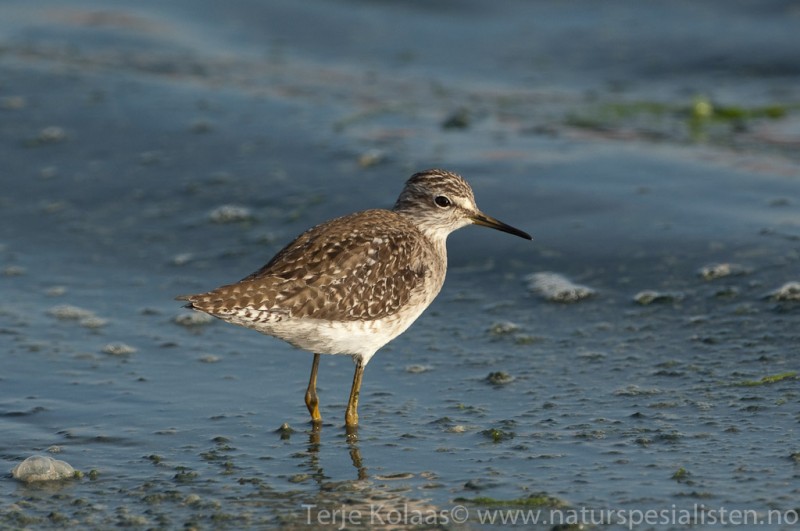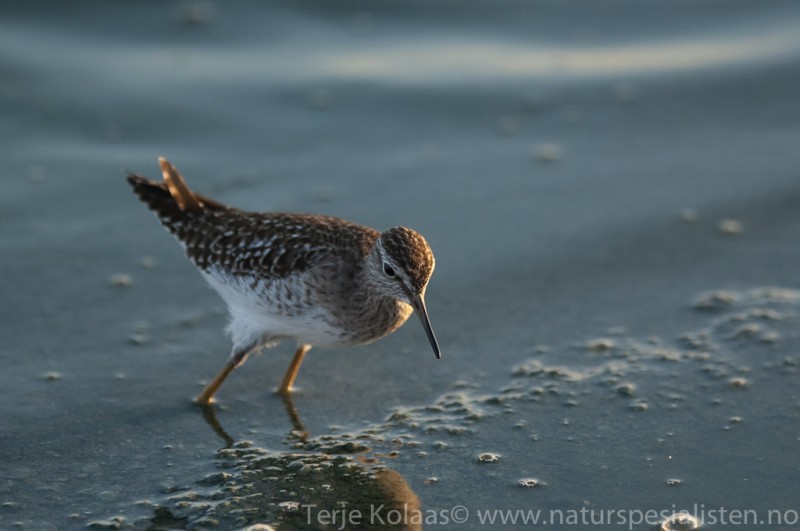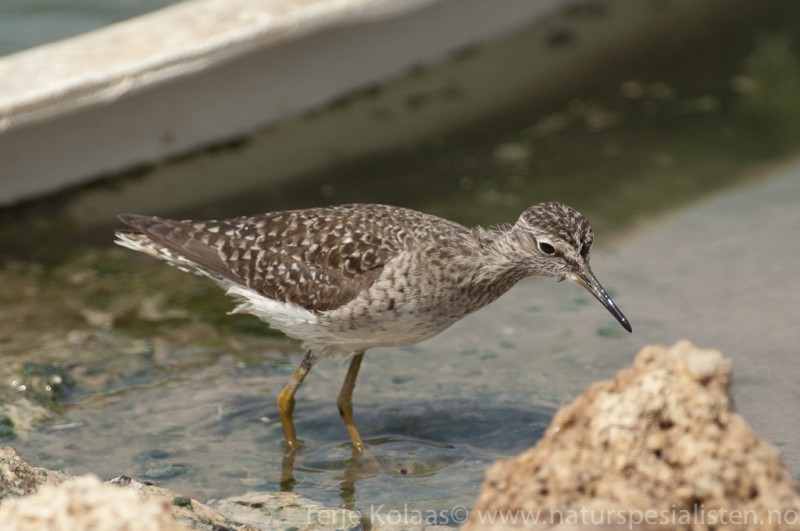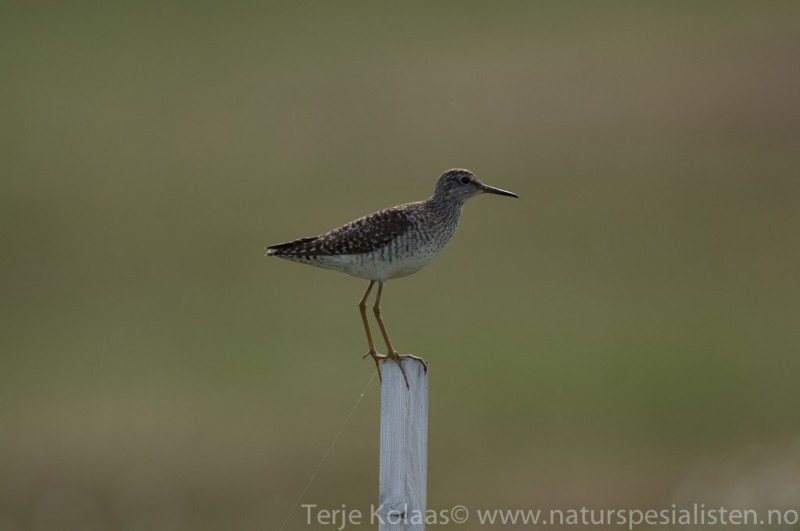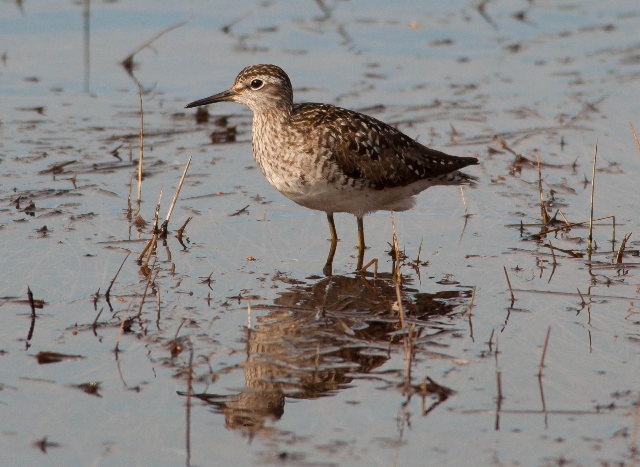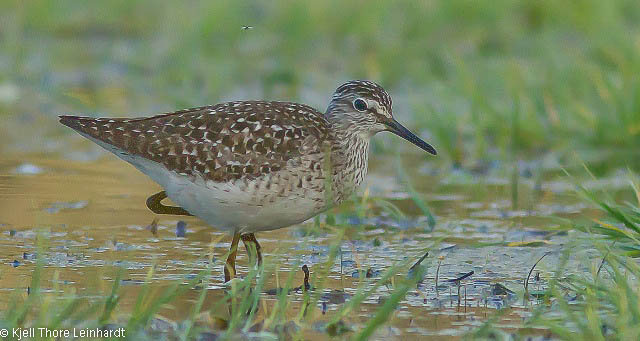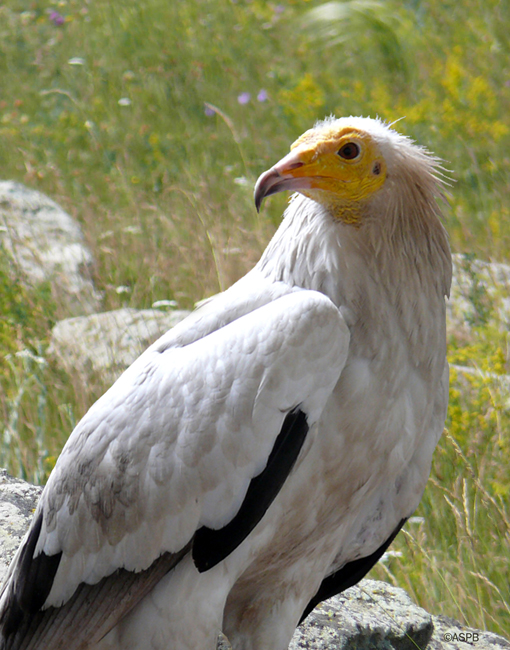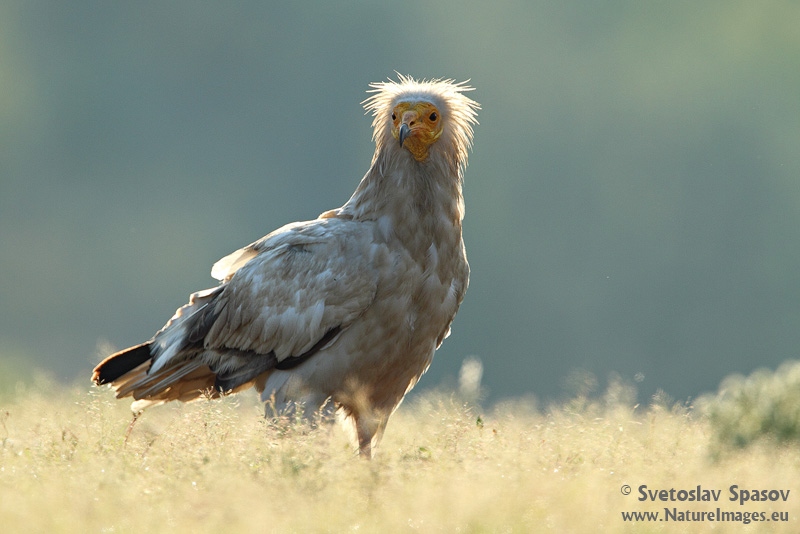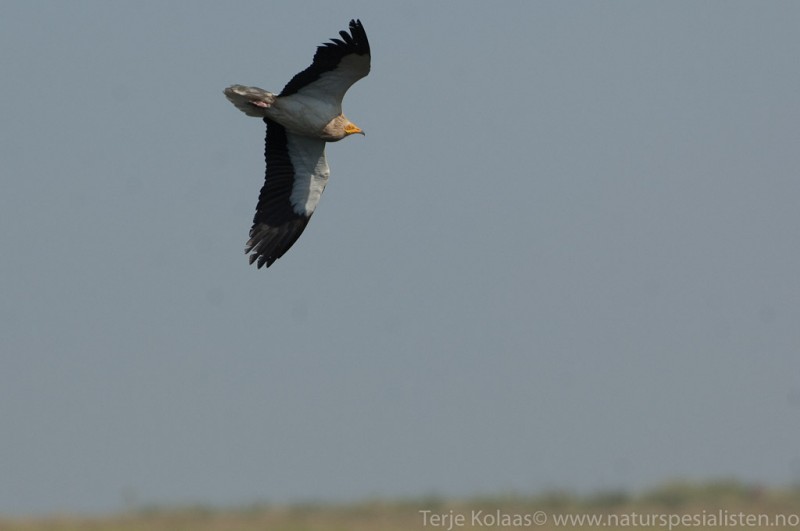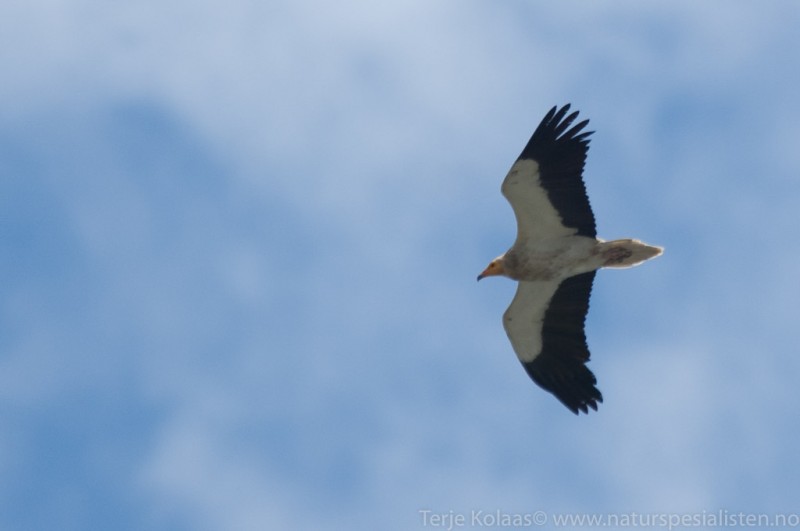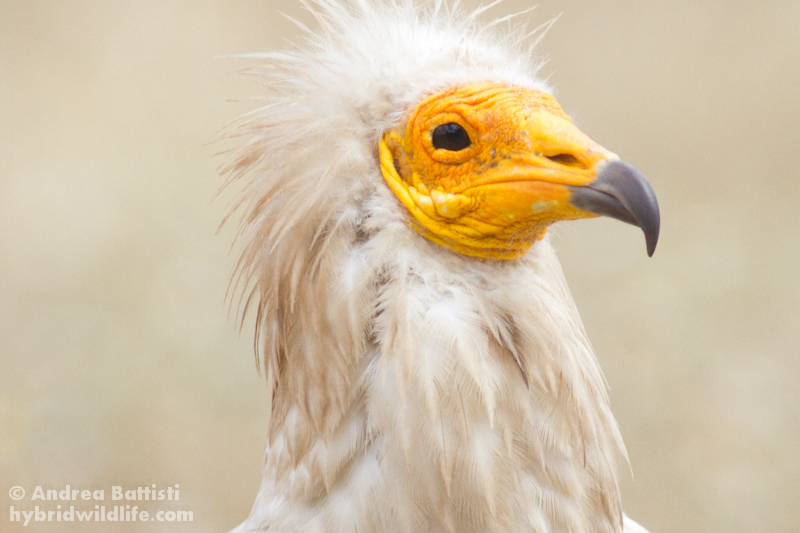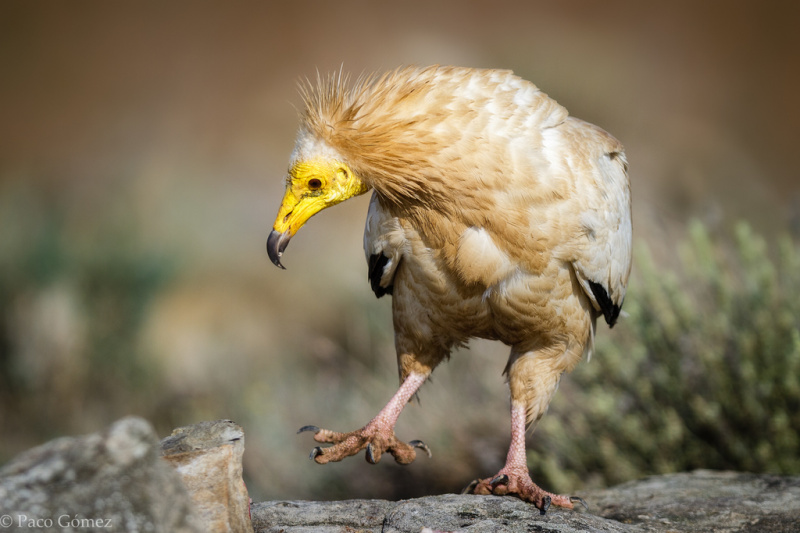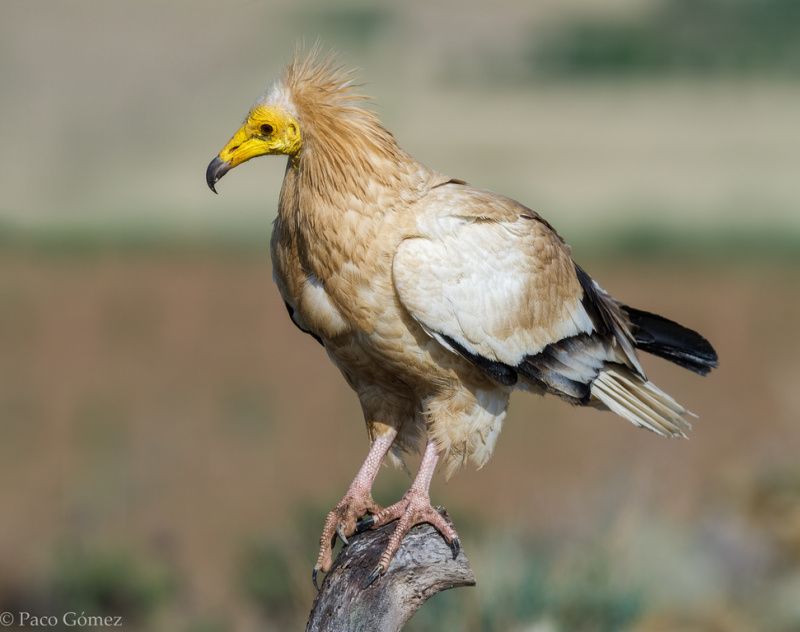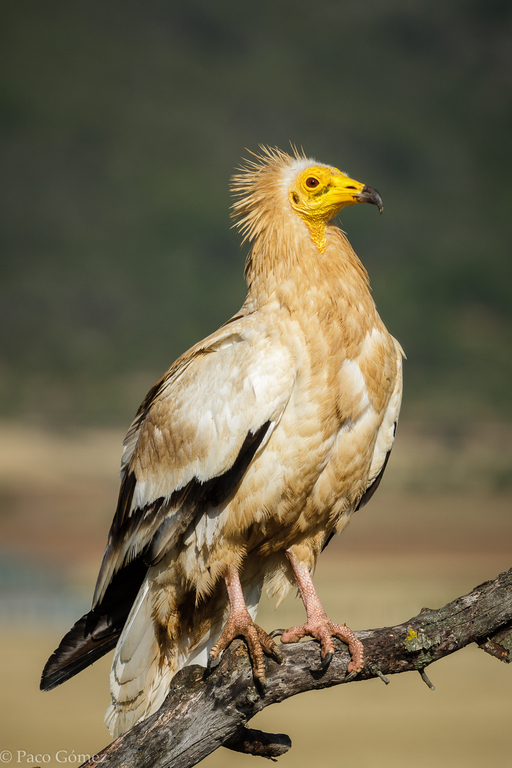Wood Sandpiper (Tringa glareola)
Egyptian Vulture (Neophron percnopterus)
An energetic, small tringa wader. Most similar to Green Sandpiper. Differs by light underwings, larger white spots on back, diffuse border between speckled chest and white belly, narrower dark markings on tail and a supercilium that reaches behind eye. Plumage leaves an overall much paler impression than Green Sandpiper, particularly in flight.
Sound:Totally different from Green Sandpiper. Flight call a soft, but explosive "whiff whiff" , sometimes with only one syllable. Display call similar to redshank but with only two accented beats; a fast melodious "dee-loo", repeated in cycles.
Song:
Distribution:
Xeno-canto: map
Ecology:Birdlife ecology
Links:
Observation.org Latest observations
Image search Flickr NB! May give other species
CCSmall vulture with characteristic flight profile, and distinct plumage with white body, white coverts and black flight feathers (in adults). Long, wedge-shaped tail, but not longer than wings are broad (as opposed to Lammergeier). Wings square with broad, full hand (slightly pointed in Lammergeier). Small head with thin bill. At long distance plumage of adults slightly similar to White Pelican, White Stork and pale Booted Eagles, but note wedge-shaped tail. Immature birds dark brown with paler coverts. Despite the less distinct plumage, the silhouette is similar to adults. Noticeably more active wing flapping and quicker wing-beats than in the large vultures.
Sound:Almost never heard. May emit different grunting sounds and a slightly mallard-like "ga ga ga ga ga ga ga".
Distribution:Wikipedia: map (se also Xeno-canto below)
Ecology:Birdlife ecology
Links:
Observation.org Latest observations
Image search Flickr NB! May give other species
CC
 English
English Albanian
Albanian
 Armenian
Armenian
 Bulgarian
Bulgarian
 Catalan
Catalan
 Croatian
Croatian
 Czech
Czech
 Danish
Danish
 Dutch
Dutch
 Finnish
Finnish
 French
French
 Georgian
Georgian
 German
German
 Greek
Greek
 Hungarian
Hungarian
 Italian
Italian
 Latvian
Latvian
 Lithuanian
Lithuanian
 Macedonian
Macedonian
 Norwegian
Norwegian
 Polish
Polish
 Portuguese
Portuguese
 Romanian
Romanian
 Russian
Russian
 Sami : Lule sami
Sami : Lule sami
 Sami : North sami
Sami : North sami
 Sami : South sami
Sami : South sami
 Scientific names
Scientific names
 Serbian
Serbian
 Spanish
Spanish
 Swedish
Swedish
 Ukrainian
Ukrainian


